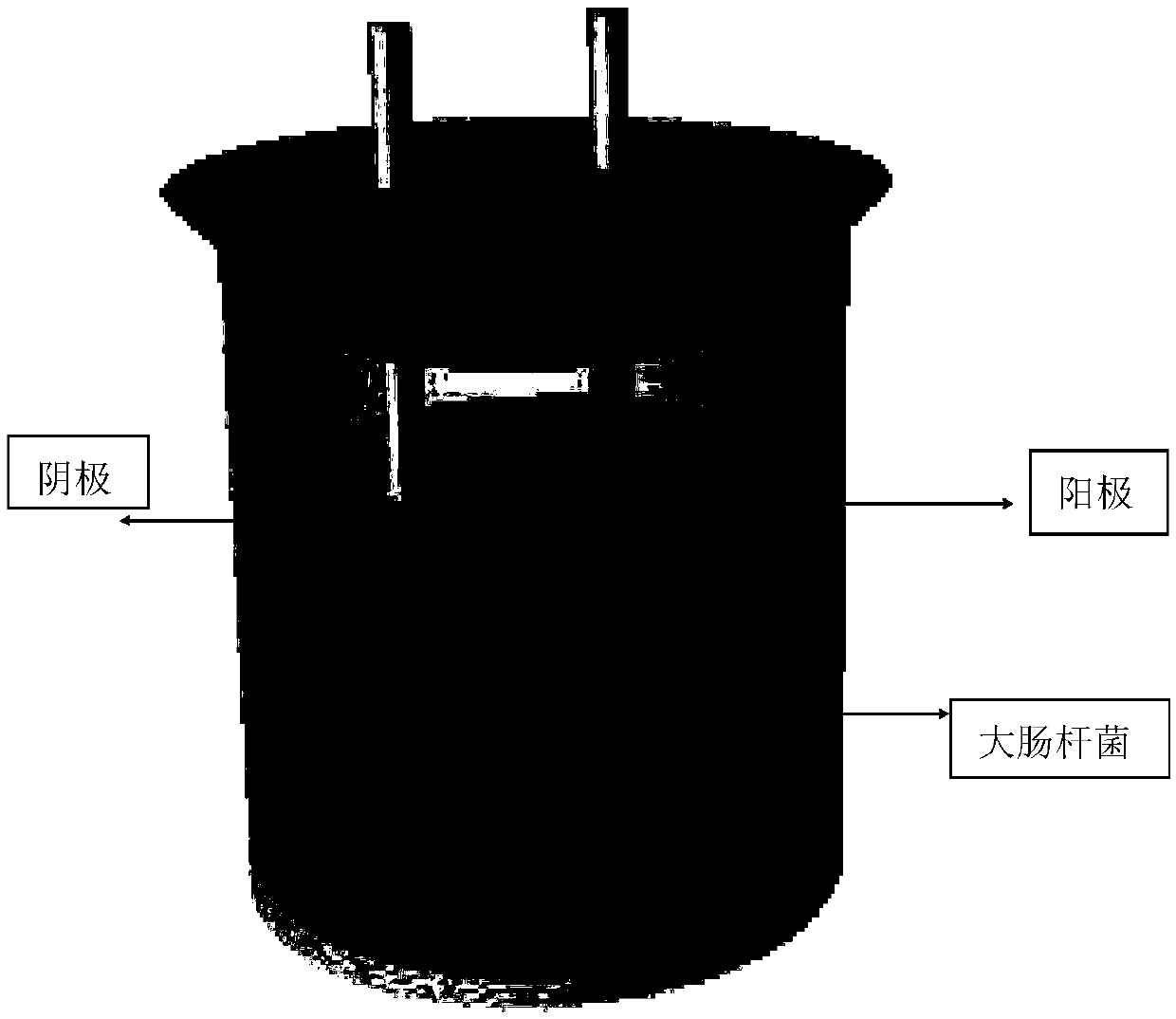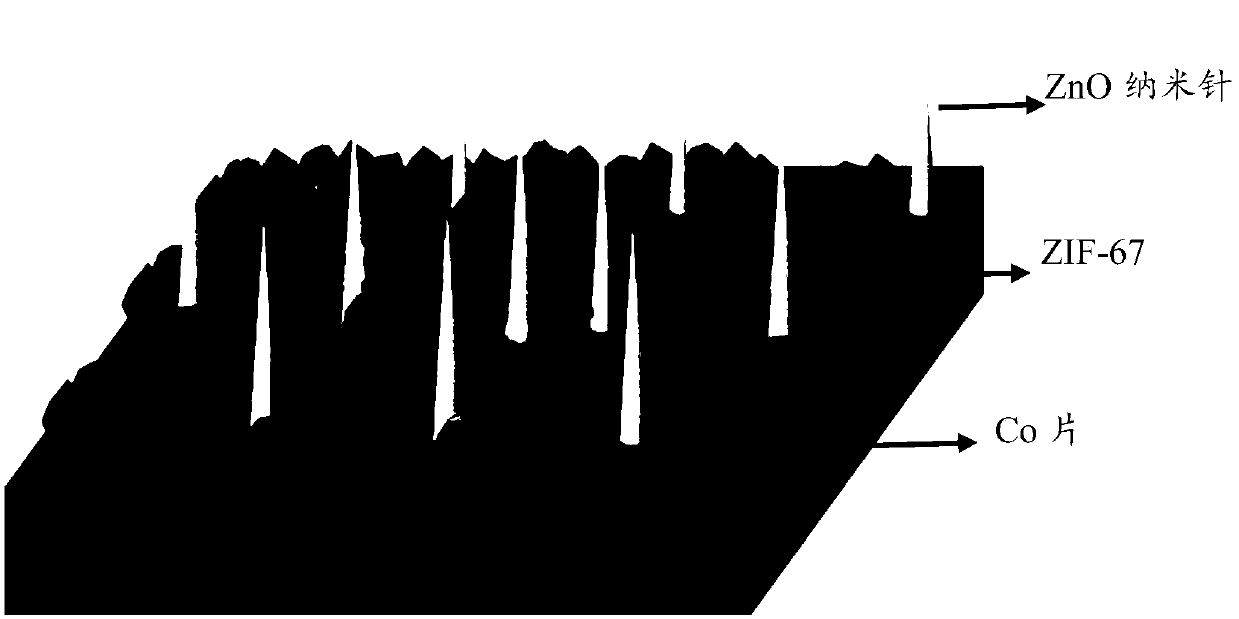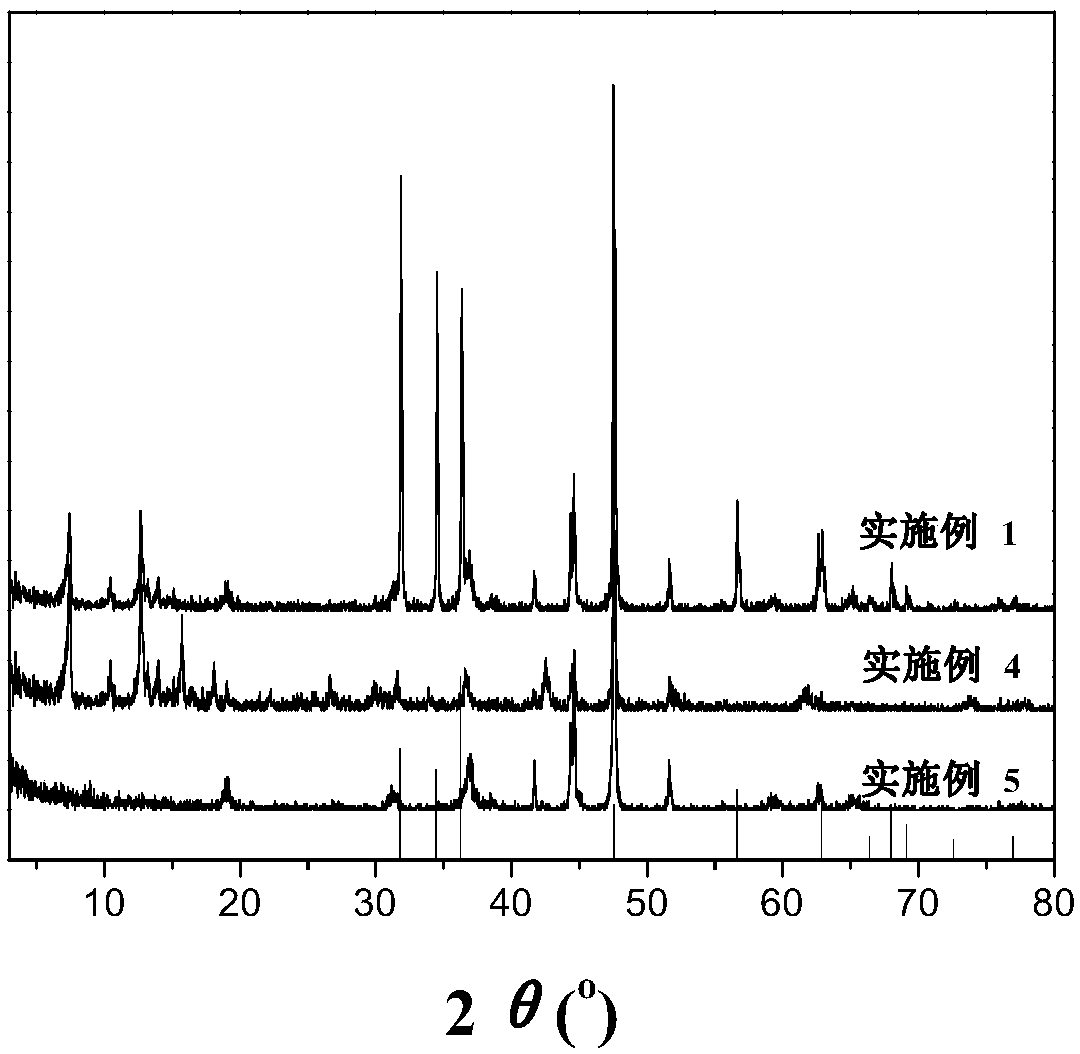Cobalt piece supported composite photocatalytic material of ZnO nanoneedles and ZIF-67 as well as preparation and application of cobalt piece supported composite photocatalytic material
A technology of ZIF-67 and photocatalytic materials, applied in the direction of chemicals for biological control, organic compound/hydride/coordination complex catalyst, application, etc., can solve problems such as insufficiency, achieve low recombination rate, prolong Effect of contact time, mineralized bacterial structure
- Summary
- Abstract
- Description
- Claims
- Application Information
AI Technical Summary
Problems solved by technology
Method used
Image
Examples
Embodiment 1
[0051] In the present invention, the preparation steps of the needle-shaped visible photocatalytic material loaded on the cobalt sheet are described in detail as follows:
[0052] Step 1: Etching of Co sheet:
[0053] First, the Co sheets were ultrasonically cleaned in acetone solution and ethanol solution for 0.5 h, and then vacuum-dried for 6 h. In the electrolyte solution containing ethylene glycol and glycerol (1 / 3, v / v), add 5.4mL H 2 O and 2.05gNH 4 F, using a DC power supply, using a Co sheet as an anode and a platinum sheet as a cathode, under the double-electrode structure, electrochemically anodized at 0°C and 30V for 4h to obtain Co 3 o 4 nanoporous layer. After the Co sheet was anodized, it was rinsed with ethanol and dried in a vacuum oven for 6 h. Then put it into an oven, heat treatment at a rate of 3°C / min to 350°C for 30min.
[0054] Step 2: Preparation of ZnO nanoneedles supported on Co sheets:
[0055] The heat-treated Co sheet was immersed in a bath ...
Embodiment 2
[0067] The preparation process was the same as that described in Example 1, and the obtained catalyst material was applied to antibacterial reactions under dark conditions.
[0068] The dark reaction antibacterial activity effect of the sample prepared by embodiment 2, such as Image 6 As shown, it shows that the sample prepared in Example 2 has less antibacterial activity under photocatalytic conditions, and the bactericidal rate is about 10%.
Embodiment 3
[0070] The preparation process is the same as that described in Example 1, and the obtained catalyst material is applied to antibacterial reaction under simple light conditions.
[0071] The photocatalytic antibacterial activity effect of the sample prepared in embodiment 3, such as Image 6 As shown, it shows that the sample prepared in Example 3 has less antibacterial activity under photocatalytic conditions, and the bactericidal rate is about 50%.
[0072] Image 6 It is the comparison of the antibacterial activity of the photocatalysis of embodiment 1, the dark reaction of embodiment 2, and the photocatalysis of embodiment 3. As can be seen from the figure, the same sample prepared by embodiments 1, 2, and 3 has the largest antibacterial activity under the condition of photocatalysis , the bactericidal rate is about 60% after half an hour, and the antibacterial activity is the lowest under dark reaction conditions, and the bactericidal rate is only 10%.
PUM
| Property | Measurement | Unit |
|---|---|---|
| Thickness | aaaaa | aaaaa |
| Specific surface area | aaaaa | aaaaa |
| Particle size | aaaaa | aaaaa |
Abstract
Description
Claims
Application Information
 Login to View More
Login to View More - Generate Ideas
- Intellectual Property
- Life Sciences
- Materials
- Tech Scout
- Unparalleled Data Quality
- Higher Quality Content
- 60% Fewer Hallucinations
Browse by: Latest US Patents, China's latest patents, Technical Efficacy Thesaurus, Application Domain, Technology Topic, Popular Technical Reports.
© 2025 PatSnap. All rights reserved.Legal|Privacy policy|Modern Slavery Act Transparency Statement|Sitemap|About US| Contact US: help@patsnap.com



